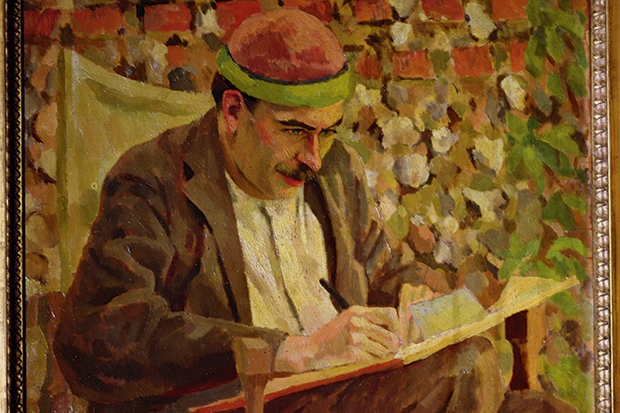To the 21st-century right, especially in the United States, John Maynard Keynes has become a much-hated figure whose name is synonymous with bogus spending on public works, insouciance in the face of mounting debt and, of course, homosexual promiscuity. It’s a virtue of Richard Davenport-Hines’s new biography that it makes clear how much this under-reads him.
So far from being the flippant old queer calumniated by Niall Ferguson, Keynes worried himself sick about inflation and was far more alarmed by budget deficits than George Osborne seems to be. He was essentially a Nonconformist Liberal for whom faith was impossible, and who saw liberalism as something needing saving from itself.
He was also, as Davenport-Hines reminds us, surely the best writer economics has ever produced: ‘the dark forces of time and ignorance’, ‘animal spirits’ that transcend mere ‘quantitative benefits multiplied by quantitative probabilities’; ‘It is better that a man should tyrannise over his bank balance than over his fellow citizens’; ‘Practical men, who believe themselves to be quite exempt from any intellectual influence, are usually the slaves of some defunct economist’.
His biographical sketches, though a bit mannered, are at their best worthy of Aubrey or Lytton Strachey:
How can I convey to the reader, who does not know [Lloyd George], any just impression of this extraordinary figure of our time, this syren, this goat-footed bard, this half-human visitor to our age from the hag-ridden magic and enchanted woods of Celtic antiquity? One catches in his company that flavour of final purposelessness, inner irresponsibility, existence outside or away from our Saxon good and evil, mixed with cunning, remorselessness, love of power….
All of this is, no doubt, well known to the readers of Robert Skidelsky’s massive volumes of biography. Everyone else will find this nicely medium-sized book organised as a series of seven not-quite-chronological sketches — ‘Altruist’, ‘Boy Prodigy’, ‘Official’, ‘Public Man’, ‘Lover’, ‘Connoisseur’, ‘Envoy’ — fascinating reading.
Keynes was born in Cambridge in 1883 to a nervous stamp-collecting economist father and a severe-sounding pro-temperance mother. He hated his appearance and poured himself into his studies, first at Eton, where he was a member of Pop, then at King’s College, Cambridge, where he was elected president of both the Union and the Liberal Club.
After a short stint in the civil service, he went back to Cambridge and did not return to government work until the first world war, during which he advised the treasury to push on with the fully convertible gold standard as long as they could, which they did. They did not, however, heed his humane warnings about German reparations in The Economic Consequences of the Peace, or take as much as they might have from the other great works he produced during the interwar period, though they were happy to have him at the Bank of England in 1941 and later at Bretton Woods.
Readers who think of Keynes as a man of the left will be astonished to learn how sceptical, at times even contemptuous, he was of the spirit of ’45 (‘The Labour party will always be flanked by the Party of Catastrophe — Jacobins, Communists, Bolshevists’) and how fiercely he opposed deficit spending and punitive taxation even at the height of the war. Everyone will wonder where he found the time to assemble one of Britain’s finest collections of antiquarian books, to flirt and sleep with so many men while enjoying a happy and not entirely sexless marriage to the beautiful danseuse Lydia Lopokova, to have an opinion about Virginia Woolf’s Three Guineas (rubbish), to co-found the Arts Council and to invest his earnings so savvily that, by his death in 1946, he was worth half a million pounds.
Though he has many kind words for Skidelsky and other predecessors, Davenport-Hines writes much better than any of them. It’s nice that in such a short book he has found space for things like his catalogue of the various flowers grown by Keynes’s grandfather, a Salisbury hothouse tycoon. The problem with very long biographies is that the importance that the author attaches to his subject tends to rub off on the subject himself; in Skidelsky a feeling of humbug and self-congratulation hangs around Keynes, one that is nowhere in evidence here.
This is not because Davenport-Hines has omitted too much, but rather, I think, because he has understood his subject better than any previous biographer. Flirting his way into important jobs, serving on charity boards, doing conservation work, toiling away on behalf of governments for whom he would never have voted: in all of this he was motivated by the belief that while liberal economics is not the be-all and end-all of human flourishing, it does help to make possible those things that might be — art, friendship, love and, though not for him, religion — and is therefore worth propping up. This is an attitude whose attractiveness no amount of reactionary lip-curling can dispel.
Available from the Spectator Bookshop, £14.99 Tel: 08430 600033







Comments